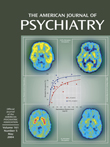Antidepressants and Premature Labor
To the Editor: Gregory E. Simon, M.D., M.P.H., and colleagues (1) neglected to include important issues in their report. The risk factors for premature labor include low socioeconomic status, previous occurrence of premature labor, gestational bleeding, and uterocervical anomalies (2). Failure to consider obstetrical health presents the possibility that these factors occurred more commonly in the group exposed to selective serotonin reuptake inhibitors (SSRIs) and were responsible for the higher rate of prematurity.
The study included women who delivered between January 1986 and December 1998. The rates of preterm delivery over the interval 1975 to 1995 increased by 3.6% among blacks and by 22.3% among whites, which indicates the presence of period effects (3). SSRI use was more common than tricyclic antidepressant use in the latter years of the study by Dr. Simon et al. (1986–1998). Therefore, a twofold increase in the rates of preterm labor cannot be specifically attributed to SSRI exposure.
Depressive symptoms were not assessed directly. Some women in both antidepressant treatment groups and the control group will remain depressed or have subthreshold symptoms. Either the active (state) effects of depression or the residual (trait) effects (changes in maternal physiology that remain even when the mother is asymptomatic) could affect pregnancy outcome negatively. Negative outcomes attributed to an SSRI may be related to either unremitting depression or the interaction of depression with SSRI exposure. To propose that negative outcomes are not due to depression because they occurred differentially across the two antidepressant-treated groups is valid only if symptom levels in both groups were equivalent.
Potentially toxic exposures have specific considerations during pregnancy that are not reported: the dose, the timing of the dose during gestation, and the changes in dose across the pregnancy. Malformations are unrelated to second- and third-trimester exposures. The likelihood that exposure to an SSRI at any time during pregnancy affects outcomes at birth is biologically implausible and conflicts with the findings of Chambers et al. (4) and Cohen et al. (5), who found that only third-trimester SSRI exposure affected birth outcomes. Pastuszak et al. (6) also found no relationship between first-trimester exposure to fluoxetine or a tricyclic antidepressant and gestational age or birth weight, contrary to such a statement by Dr. Simon et al. (p. 2060).
1. Simon GE, Cunningham ML, Davis RL: Outcomes of prenatal antidepressant exposure. Am J Psychiatry 2002; 159:2055–2061Link, Google Scholar
2. Berkowitz GS, Papiernik E: Epidemiology of preterm birth. Epidemiol Rev 1993; 15:414–443Crossref, Medline, Google Scholar
3. Ananth CV, Dawn PM, Demissie K, Smulian JC: Rates of preterm delivery among black women and white women in the United States over two decades: an age-period-cohort analysis. Am J Epidemiol 2001; 154:657–665Crossref, Medline, Google Scholar
4. Chambers CD, Johnson K, Dick LM, Felix RJ, Jones LK: Birth outcomes in pregnant women taking fluoxetine. N Engl J Med 1996; 335:1010–1015Crossref, Medline, Google Scholar
5. Cohen LS, Heller VL, Bailey JW, Grush L, Ablon SJ, Bouffard MS: Birth outcomes following prenatal exposure to fluoxetine. Biol Psychiatry 2000; 48:996–1000Crossref, Medline, Google Scholar
6. Pastuszak A, Schick-Boschetto B, Zuber C, Feldkamp M, Pinelli M, Sihn S, Donnenfeld A, McCormack M, Leen-Mitchell M, Woodland C, Gardner A, Hom M, Koren G: Pregnancy outcome following first-trimester exposure to fluoxetine (Prozac). JAMA 1993; 269:2246–2248Crossref, Medline, Google Scholar



